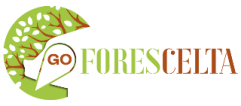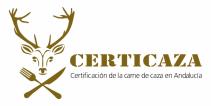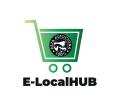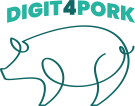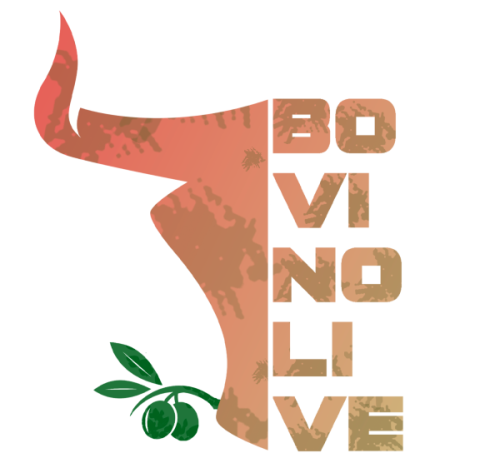
BOVINOLIVE Operational Group: Sustainable production of beef and milk through the biocircular use of olive oil by-products
- Type Operational group
- Status In progress
- Execution 2023 -2025
- Assigned Budget 251.272,00 €
- Scope Autonómico
- Autonomous community Andalucía
- Project website GO BOVINOLIVE
The project includes initial activities involving olive pulp characterization and feed design, followed by in vitro testing and the formulation of control and experimental diets with different pulp inclusion percentages.
Subsequently, a study will be conducted on the effects of including olive pulp in the diet of fattening calves, as well as a study on the effects of including olive pulp in the diet of lactating cows. In the case of dairy cows, animals will be monitored using ICTs. Finally, an economic analysis and a study of consumer preferences will be conducted, in addition to a series of outreach activities.
The project is innovative and strategic, covering thematic areas such as agriculture, improvement of production techniques, productivity and processes, the agri-food industry, food safety, organoleptic characterization, market research, and marketing, aligning with the main objective of the Andalusian Circular Bioeconomy Strategy.
Thus, it contributes to the growth and sustainable development of Andalusia by promoting the production of renewable biological resources and processes, specifically by increasing the availability of sustainable biomass for use through innovative treatments. This could potentially increase the number of bioindustries in Andalusia and boost markets and consumption of Andalusian bioproducts and bioenergy.
The main objective of GO-BOVINOLIVE is to obtain beef and milk following the principles of the bioeconomy and the circular economy, with positive nutritional characteristics for humans through the inclusion of olive pulp (dry fatty pomace) in the feed of fattening calves and dairy cows in a technologically efficient and viable way.
At the same time, the goal is to improve management of livestock data to optimize production costs through information and communication technologies.
The main expected results of the project include:
- To learn in detail about the digestive benefits of olive pulp and the diets in which it is included.
- Improve the technological quality of meat and milk from animals fed olive pulp and the efficiency of these animals' feed, to achieve greater profitability and sustainability in cattle farming.
- Quantification of the reduction in the environmental impact, in the form of digestive methane, of the contribution of olive oil industry byproducts to the feed of fattening calves and dairy cows.
- To understand the attributes of beef and milk from animals that consume a diet containing byproducts from the olive oil industry, which can allow for their positive identification in the food chain and enhance their perception as sustainable foods by consumers.
- Recording all production and welfare data for each individual animal in real time using ICTs to improve production efficiency in near real time.
- To determine consumer preferences, acceptance, and willingness to pay for beef and milk from animals fed by-products from the olive oil industry, within the context of more sustainable livestock farming. The project aims to resolve practical details and demonstrate the advantages of using partially pitted pulp. The economic analysis and prospective evaluation of the level of consumer acceptance of the resulting livestock products is the final guarantee of the viability of this project.
- Coordinator/entity name: DCOOP Andalusian Cooperative Society
- Postal address: Ctra. de Córdoba s/n, 29200, Antequera, Málaga
- Coordinator/entity email: silvia.lopez@dcoop.es
- Telephone: 952841451
The project focuses on:
- A) Promote an agricultural sector that is resource-efficient, economically viable, productive and competitive, has low greenhouse gas emissions, is climate-friendly and resilient to climate change, and is in harmony with the essential natural resources on which agriculture depends.
- B) Contribute to a stable and sustainable supply of food for livestock and humans.
- C) Improve processes aimed at environmental protection.
- D) Bridging the gap between scientific research and the needs of the agricultural and food sectors by creating links between cutting-edge knowledge and technologies and farmers and ranchers (producers).
- E) Create added value through a closer relationship between research and agricultural and livestock practices.
- F) Promote faster and more widely implemented practical application of innovative solutions.
- DCOOP Sociedad Cooperativa Andaluza
- Alba Ganaderos S.Coop.And. (gerente@medivetnova.com)
- ceiA3 Campus de Excelencia Internacional Agroalimentario (opi02.op@ceia3.es)
- DCOOP Sociedad Cooperativa Andaluza
- News
- Video GO-BOVINOLIVE Sustainable production of beef and milk
- Video GO BOVINOLIVE - Biocircular use of olive oil by-products
- Operational Group Instagram Account
- Facebook Account of the Operational Group
- Account of the Operating Group in X
- Operational Group YouTube Account
- DCOOP Web
- Web Alba Ganaderos S. Coop. And.
- CeiA3 Website




